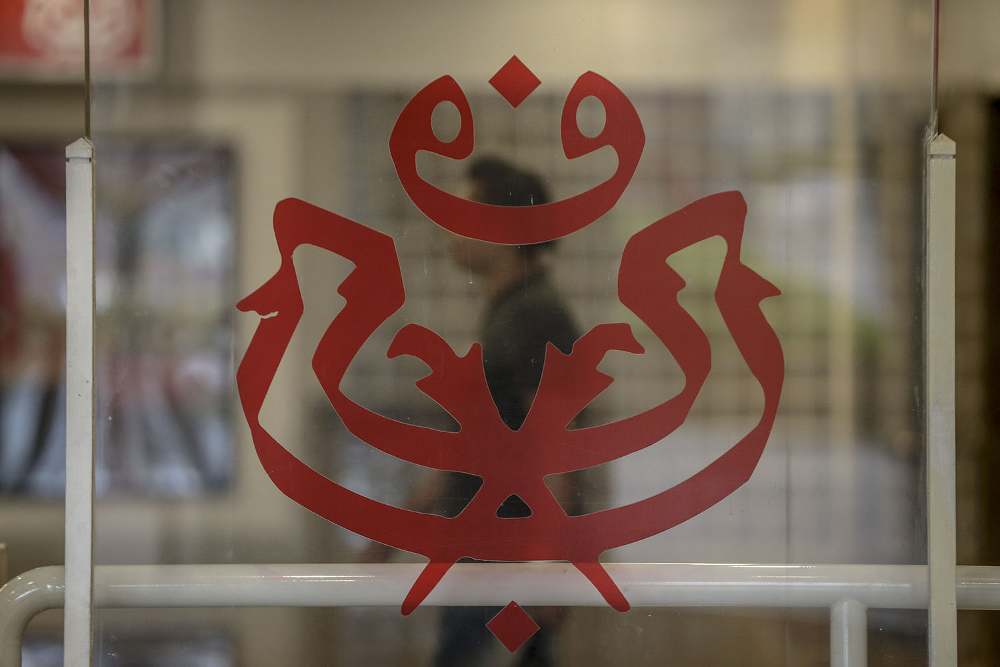KUALA LUMPUR, Dec 20 ― Datuk Seri Ahmad Zahid Hamidi yielded his duties as Umno president to deputy Datuk Seri Mohamad Hasan to try and stem the party’s ongoing exodus, but analysts are unconvinced the move will be effective.
Some said only a fresh party election would get Umno out of its current rut, but conceded that there were few credible leaders to take over and steer the party towards the reforms it desperately needs to function well as an Opposition party.
Universiti Kebangsaan Malaysia political analyst Datuk Mohammad Agus Yusoff believes that while Zahid’s decision may temporarily appease some Umno malcontents, it will not do much for the party in the long run if it remains directionless.
“Zahid’s move can cool down the situation as a temporary measure, no more. Umno has to be cleansed, its former leaders cannot remain as the face of the party,” he told Malay Mail when contacted.
Mohammad Agus said that old leaders may remain as advisers to Umno for stability, but the party must call for fresh polls and pick a new line-up of leaders.
Crucially, he said the leaders must not be those associated with the previous regime that led the party to defeat.
“Mohamad Hasan may help stabilise the party for the time being, but after that it should go for fresh elections,” he added.
Universiti Putra Malaysia analyst Jayum Jawan said that Zahid taking garden leave will do little to revive Umno members’ confidence in its leadership, and questioned the political pedigree of Mohamad.
Among others, he said the former Negri Sembilan mentri besar’s influence was limited to the state and would not do much to win over the other party warlords scattered across the country.
However, he said the reforms must also extend throughout the party rather than just at the top.
“There is no other option if Umno members want to revive Umno and ensure that it becomes relevant in Malaysia that is going into a new political environment,” he told Malay Mail.
But some believe that the Umno exodus has little to do with unhappiness over Zahid’s leadership and more about the party’s inability to function effectively as a member of the federal Opposition bloc
Pacific Research Centre principal adviser Oh Ei Sun told Malay Mail that Umno was so used to being in power that its members are unable to function without the perks and benefits of being part of the ruling coalition.
“They quit because having been used to Umno’s money politics, they simply could not stomach being Opposition MPs without the attendant interests and benefits. By jumping they could at least position themselves to continue with the new government’s gravy train again.
“So it really doesn’t matter who leads Umno from now on,” Oh said.
Who should lead Umno?
The question on who should lead Umno is still open-ended now, but some analysts believe that Rembau MP Khairy Jamaluddin could be the person for the job instead of acting president Mohamad who is viewed as being similarly compromised as Zahid.
Universiti Kebangsaan Malaysia’s Faisal Hazis said the challenge for Mohamad is to provide leadership, boost the morale of Umno members, and inspire them to be a credible and strong Opposition.
However, he went on to propose former Umno Youth chief Khairy as a more suitable person for the task.
This is despite Khairy being among the more prominent members of Datuk Seri Najib Razak’s administration, which lost to Pakatan Harapan in the 14th general election.
“Khairy has the ability to bring Umno forward because he seems to be the only one who talks about reforms within the party… and he was the first Umno/BN leader to admit defeat and acknowledge their weaknesses and the need to reform,” he explained.
Analysts like Lim Teck Ghee, the director of Centre for Policy Initiatives, felt that Mohamad’s political credibility is just as questionable as Zahid’s as the former has been linked to a meeting with Prime Minister Tun Dr Mahathir Mohamad over talks of leaving Umno.
“As for Mohamad Hasan, he has asked Dr Mahathir’s advice on leaving Umno. Hence his political credibility is equally suspect. His time will also be taken up with fighting the by-election due soon in Rantau,” he said, referring to the state seat previously held by Mohamad before it was declared vacant recently.
James Chin, director of Asia Institute at University of Tasmania echoed Lim’s remarks, saying that like Zahid, Mohamad’s future in Umno is also in doubt, and that the issue for Umno right now is to rebrand itself in time for GE15.
“The complete fall of Umno is a reminder that Umno was actually never a strong party. It was a party that was strong because it gave resources to its lawmakers and supporters.
“Once they are in the Opposition, there is no reason to support Umno anymore. History will say Umno’s so-called Malay nationalism ideology probably died in the 1980s when money politics took over,” he said.
Just last week, six Umno MPs quit the party to become independent lawmakers, joining three high-profile names who earlier left to join Dr Mahathir’s Parti Pribumi Bersatu Malaysia.
There are only 37 Umno MPs left now, down from the 54 after the May 9 polls.



















